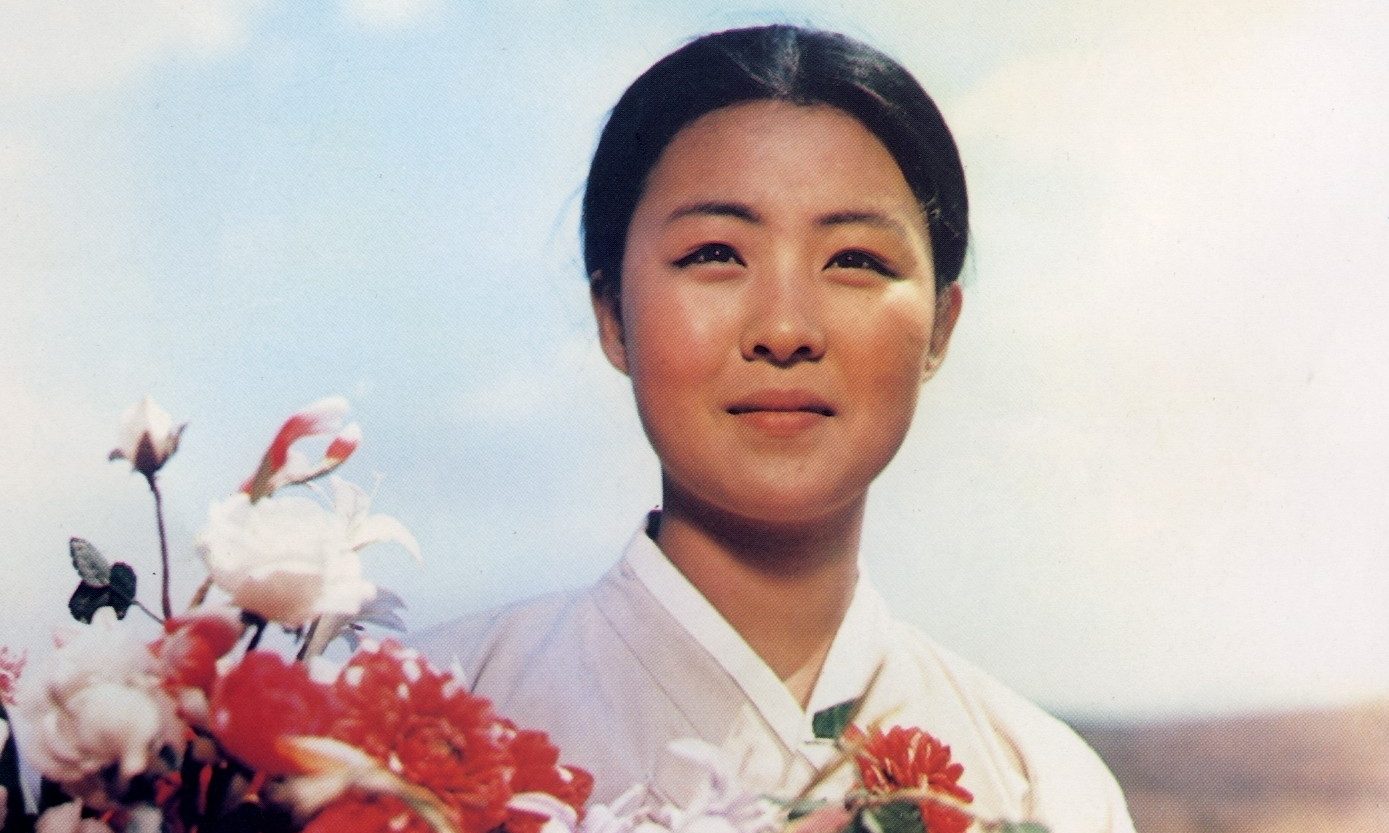The Flower Girl - the most well-known North Korean opera and film
The Flower Girl is a North Korean revolutionary genre theatrical performance, which according to North Korean sources, was written by the country's first President Kim Il-sung. The opera was intended to promote the communist ideology, by incorporating themes such as the class struggle against the bourgeois. Although it is commonly stated that Kim Il-sung was the sole author of the production, critics in China cast doubts over the reliability of the claim, and suggest that other North Korean writers may have also had some form of interaction in the opera's production.
The story is set during the 1930s, and is based on the anti-Japanese guerrilla movement during the period of Japanese occupation in Korea. A poor, rural girl picks flowers on the mountain every day to sell at the market, and to care for her sick mother. She has a blind sister, and her father is dead. Her mother is in debt to the landlord, and is bankrupt, unable to purchase food. The landlord's henchmen frequently harass the girl and make demands for her to work for them, but her mother refuses. The girl then discovers her blind sister singing in the streets for money. Eventually, she collects enough money to purchase medicine for her mother, but by the time she returns to the house, her mother has already died. The landlord's wife becomes sick, and blames the sickness on the flower girl's blind sister, whom she says is possessed by the spirit of her deceased mother. The landlord's wife plots for her to be frozen to death in the snow. When the flower girl returns home and asks where her sister has gone, the landlord's henchmen tie her up. In the nick of time, her brother, who is in the Revolutionary Army, returns home to visit family. He quickly he realizes that the flower girl has been imprisoned, and he organizes a group of villagers to overthrow the landlord.
According to Paul Fischer, the author of A Kim Jong-Il Production, "it is almost impossible to exaggerate" the importance of The Flower Girl to North Korea's cultural history. The film was immensely popular both domestically and abroad, particularly in China. It was the first North Korean film to win an international film award, at the 18th Karlovy Vary International Film Festival in 1972, and remained the only one until the 1980s.
The opera and its film adaptation were both well received in the People's Republic of China when they were introduced there since September 9, 1972, predominantly during the closing period of the Cultural Revolution and the beginning of the era of Deng Xiaoping's rule. As the film was played in Chinese cinemas during the period of the Cultural Revolution, the movie became immensely popular due to its proletarian revolution-based content, to the point where theaters even adopted a 24-hour screening cycle because of high ticket sales.
As of 2008, the opera has been performed over 1,400 times in North Korea and more than 40 other countries. The film forged Hong Yong-hee into a film icon. She is depicted on the North Korean one won banknote, in her role as the flower girl. The film made Choe Ik-kyu, the director, a confidant of Kim Jong-il.
In South Korea, the film was deemed as communist propaganda and a symbol of the enemy, and screening was banned; police were often mobilized when university students were found playing the film on campus, and the students were often accused of being sympathetic with the North. In 1998, the Supreme Court of South Korea ruled that The Flower Girl and six other North Korean films were "not favoring anti-ROK sentiments" in regards to national security laws.
*************
Want to learn more about culture and cultural training in the Department of Defense (DoD)? CultureReady.org is here to help! We are a public resource to discover specific information about various cultures and also training on cross cultural competence or general concepts that affect all cultures. If you are in the military, or support the military, or are thinking of joining the military, we welcome you to check it out! Some of our Department of Defense (DoD) oriented material is restricted to government ID holders, or password protected, but our goal is to provide you with some training that is easy to access. Cultural competence is important to military missions, the Department of Defense (DoD), and for all those who support those missions. Learning about specific cultures will help you accomplish challenging tasks in a culturally complex environment. Being ready for any cultural challenge in an important aspect of military readiness. For more information on culture readiness and training, be sure to check back to CultureReady.org
